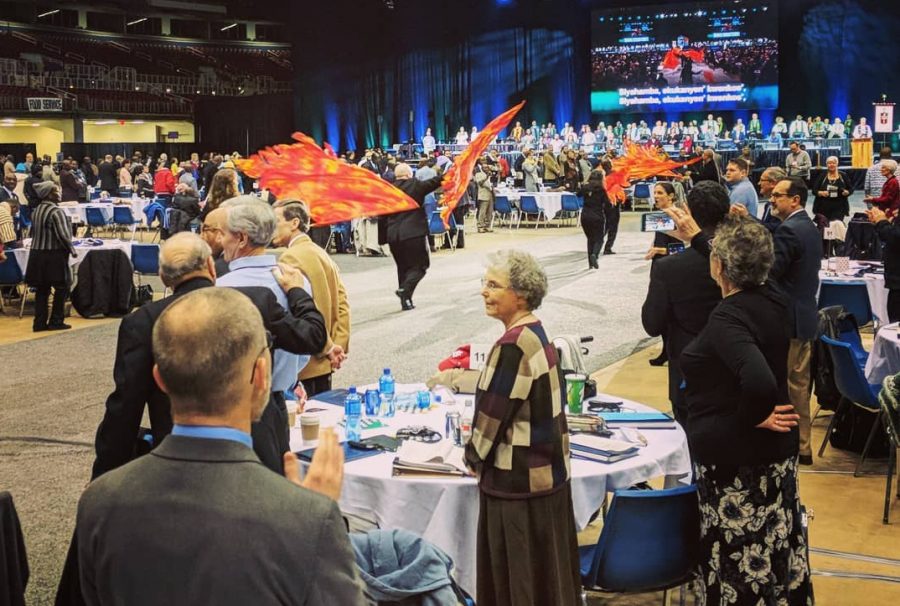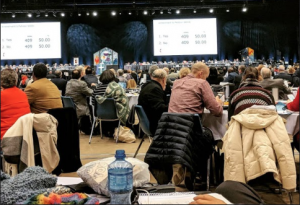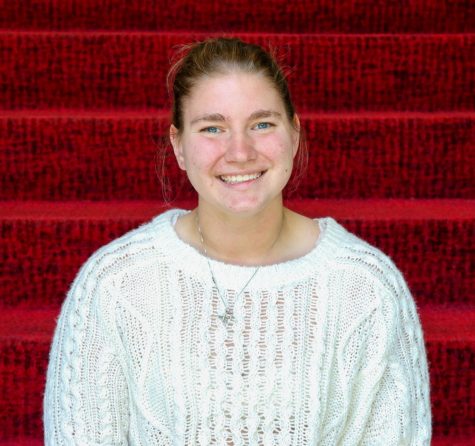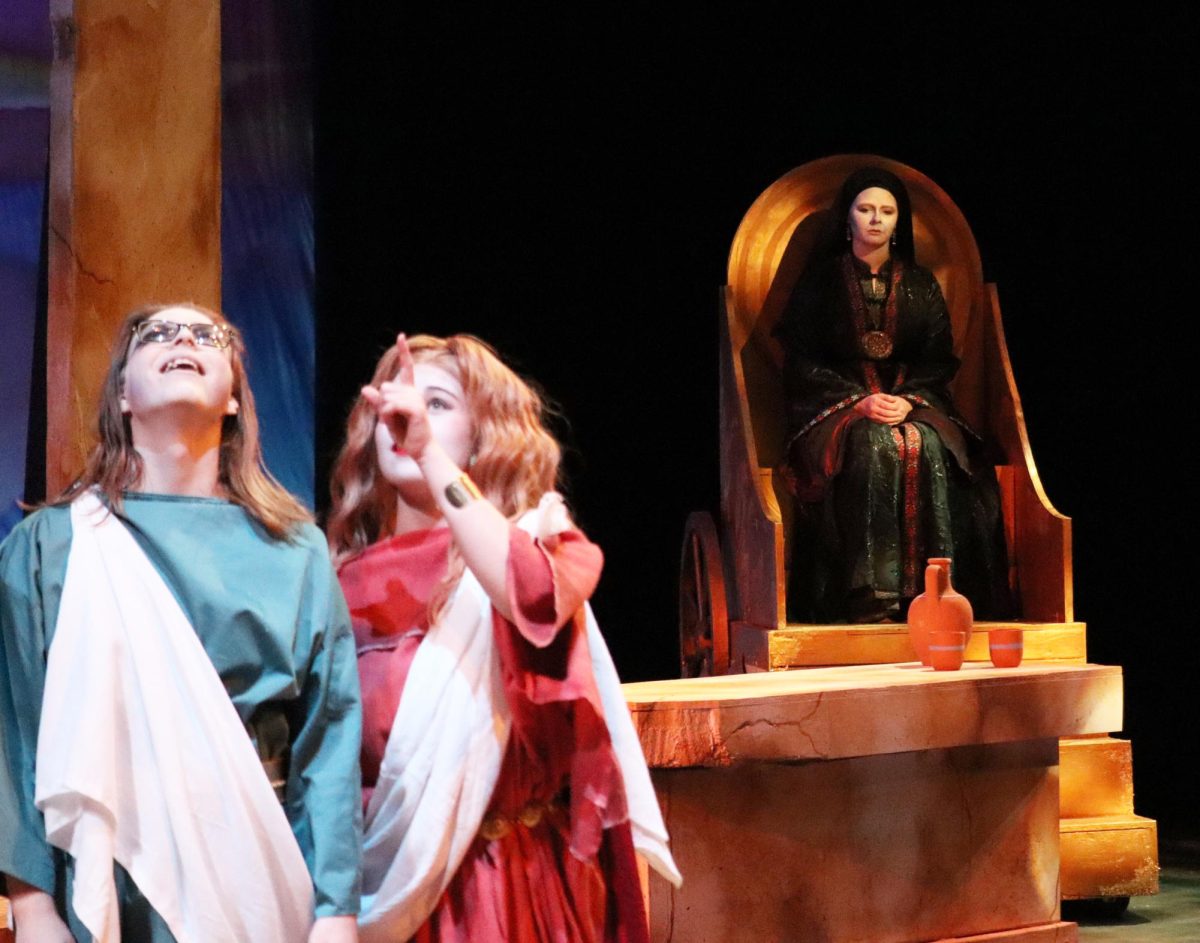LGBT students, faculty react to United Methodist General Conference decision
March 6, 2019
Last week, the delegates at the General Conference of the United Methodist Church passed a traditional plan which reinforces the current rules that don’t support same-sex marriage and don’t allow LGBT members to be ordained. Students, faculty and staff have concerns about the plan.
“It’s also not at all clear whether that plan can be implemented according to our United Methodist Constitution,” Professor of Religion Jan Everhart said.
Everhart grew up in the United Methodist Church and was ordained in California as a deacon in 1980 and an elder in 1983. She was a pastor for 17 years. She has been with her wife for 30 years and the two were married in 2009.
Everhart has also attended multiple General Conferences and says the topic of inclusion has been debated for years.
“We’ve been arguing about this almost since the formation of the United Methodist Church, which became a denomination in 1968. We’ve been arguing about this since 1972. General Conference after General Conference and we have invested an incredible amount of time and energy and money into this conversation,” she said. “I find that incredibly frustrating.”
Everhart said the votes have generally gotten closer and more support inclusion.
“I do think, and the jury’s out, I do think one thing that may happen this time is that, maybe for one of the first times, some of the allies or some of the people on the fence got a clearer picture of how much harm has been done to the LGBT community,” Everhart said.
The General Conference affirmed the current rules in the Book of Discipline, but Everhart plans to remain a part of the denomination.
“Personally, I really am wedded to Wesleyan theology. You know, this is my tradition. At this moment, I am of the mind that this is my church too, and I’m not going anywhere,” she said.
Everhart is also sad for her students who are deeply connected to the Methodist Church and who are members of the LGBT community. She said her students have questions about whether there is a place for them in the church.
Senior religion major Anne Marie Webb, who is bisexual, is also frustrated with the decision.
“I feel defeated,” she said. “At this day and age how can we still be debating this topic?”
Webb plans to go to seminary to become a pastor but is uncertain about her future and is waiting to see if the church splits.
“If there is a possibility that there will be a section of Methodists that are open and inviting and will allow LGBTQ members to be ordained, I will go that direction because I do feel like I fit best in the Methodist denomination,” Webb said. “But I am (bisexual) so if I want to be ordained, they have to be accepting and willing. If we don’t split, then I’m probably going to have to choose another denomination or wait until future General Conferences finally open up their minds.”
Junior public relations major Blake Carlson also grew up in the United Methodist Church and attends church regularly with his parents, the General Conference decision made him fearful of the church in general because he feels ostracized and thinks that could be worse.
“The church scares me right now,” Carlson said.
He grew up in the conservative small town of Spencer, Iowa, where about 200 of people attend Grace United Methodist Church.
“I would not say that I always enjoyed being involved in the church for that reason. Not because of the church but because of the people who went to the church,” Carlson said.
Carlson came out as gay about seven months ago.
“I chose not to come out until I did, fully, because of this very reason because I fear, I still fear, what would happen to me if I died tomorrow. Where would I go? That’s something I think about way to often,” he said.
Carlson wasn’t surprised by the decision of the General Conference and said the church isn’t necessarily going backwards but isn’t going forward.
He still plans to be involved in the Methodist Church.
“I know who I am. I know my stance. I know what I believe, so I’m going to take that into the church regardless of whether they believe that or not,” Carlson said.
However, he said that his faith has wavered, especially given the decision.
“It’s very hard sometimes to keep the faith,” he said. “It’s very hard to continue to pray sometimes. Why is this all happening?”
Carlson also said he is fearful of the church in general because he feels ostracized and thinks that could be worse.
“The church scares me right now,” Carlson said.
While there is currently uncertainty within the United Methodist Church, others see hope in an accepting future.
“God does not reside in church,” Everhart said. “Church is an institution. It’s one way of helping people to organize and strategize for ministry, but the institution cannot capture or limit the love of God.”








